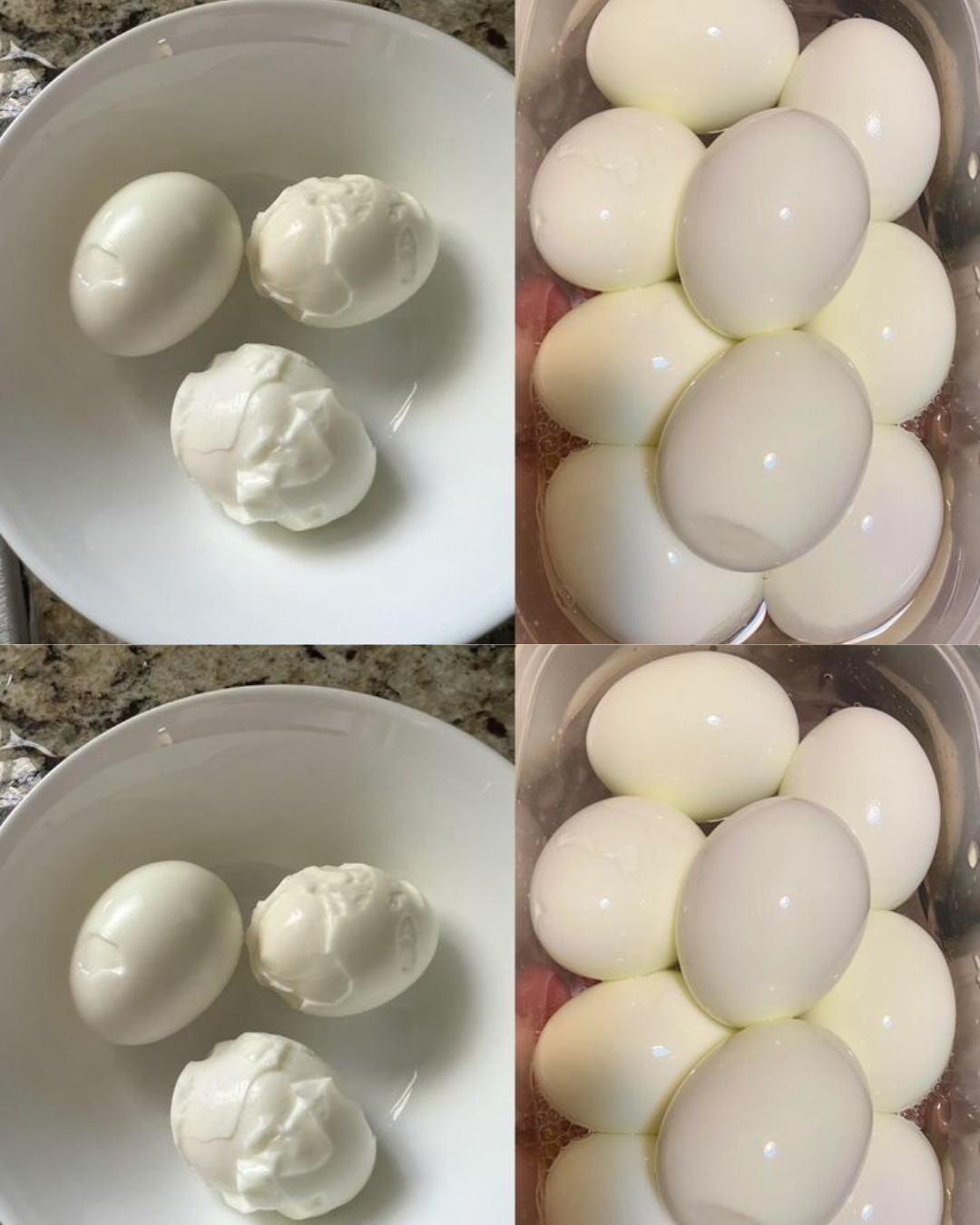ADVERTISEMENT
This hack is particularly useful when you’re working with fresh eggs.
3. Bring the Water to a Boil, Then Simmer
Once you’ve added the baking soda, bring the water to a boil over high heat. Once the water starts to boil, reduce the heat to medium-low to maintain a simmer, and cook the eggs for about 9-12 minutes. The exact time will depend on how well-done you prefer your eggs:
- 9 minutes: Slightly soft, creamy yolk
- 12 minutes: Fully set, firm yolk
The key here is to let the eggs cook gently so they don’t crack, which can lead to difficulty peeling.
4. Shock the Eggs in Ice Water
This next step is critical for stopping the cooking process and ensuring that your eggs don’t overcook. As soon as your eggs are done cooking, immediately transfer them into a bowl of ice water or a bowl of very cold water for at least 5 minutes.
This cooling process does two things:
- It helps prevent the eggs from continuing to cook (they’re already perfectly cooked).
- It makes peeling much easier by causing the egg whites to contract slightly, which creates a gap between the egg white and the shell.
5. Crack the Egg Gently
Once the eggs have cooled, gently tap them on a hard surface (like your kitchen counter) to crack the shell. Roll the egg lightly to ensure the cracks are all around the surface.
6. Peel Under Running Water
The final step is to peel the egg under running cold water. The water helps to wash away any bits of shell that may be stuck and ensures that the egg white stays intact. Start peeling from the wider end of the egg (where there’s usually a small air pocket), and the shell should come off much more easily.
Why This Hack Works So Well
The addition of baking soda plays a pivotal role in this hack by raising the water’s pH, which weakens the bond between the egg white and the shell’s inner membrane. The cooling process in ice water further helps by creating a small gap between the egg white and the shell, making it much easier to peel. The combination of these two methods allows you to enjoy a perfectly peeled hard-boiled egg with minimal effort and frustration.
Additional Tips for Perfect Hard-Boiled Eggs
- Don’t Overcrowd the Pot: If you’re boiling a large number of eggs, make sure they fit comfortably in the pot without being overcrowded. If the eggs are too cramped, they may crack during cooking, making peeling harder.
- Peel After Cooling: While it’s tempting to peel your eggs right after boiling, they’re much easier to peel after they’ve cooled. Allowing the eggs to chill in ice water makes the membrane shrink and pull away from the egg white, resulting in smoother peeling.
- Try the “Shake” Method: If you’re having trouble peeling by hand, you can place the egg in a small container (like a glass or jar with a lid), add some water, and shake it gently. This can help loosen the shell and make peeling faster.
- Storage Tip: If you have leftover boiled eggs, store them in their shells in the refrigerator. This keeps the eggs fresh longer and prevents them from drying out.
Why It’s Worth the Effort
Peeling hard-boiled eggs may seem like a small task, but the frustration of struggling with cracked or stubborn shells can be a real deterrent. By using this clever baking soda hack, you’ll find that peeling hard-boiled eggs becomes an easy, almost enjoyable task. No more mess, no more wasted eggs. Just perfectly peeled eggs, ready for whatever dish you’re preparing!
Whether you’re making deviled eggs, preparing a salad, or simply enjoying a snack, this simple technique will help you achieve perfectly peeled hard-boiled eggs every time.
Conclusion
The struggle of peeling hard-boiled eggs is real, but with this chef-approved hack, it’s a problem of the past. By adding a bit of baking soda to your boiling water and cooling the eggs in ice water, you can ensure that your hard-boiled eggs come out with perfectly intact whites and smooth, easy-to-peel shells. This technique will not only save you time but will also make your egg preparations so much more enjoyable.
Next time you’re making hard-boiled eggs, give this method a try—you’ll wonder why you didn’t know about it sooner!
ADVERTISEMENT
ADVERTISEMENT
